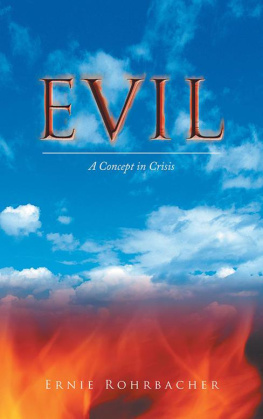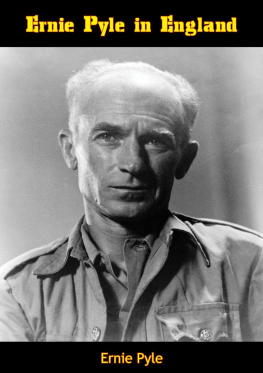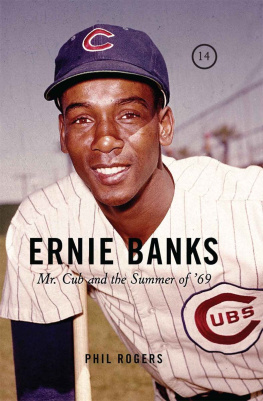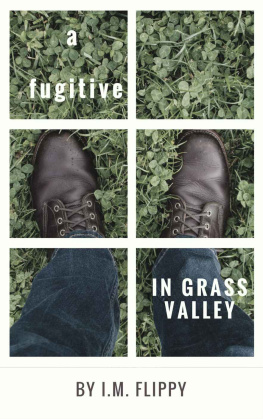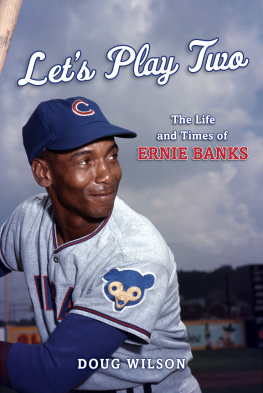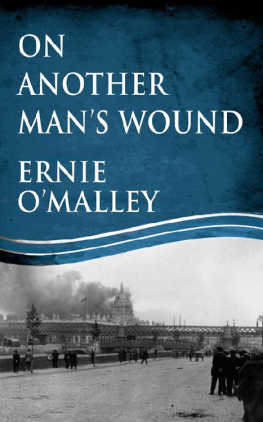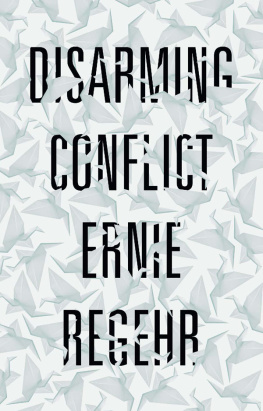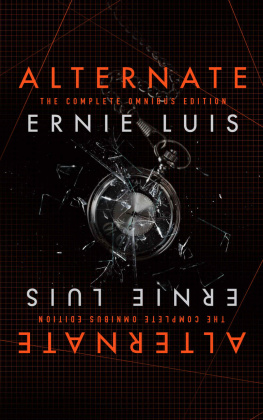The
Unexpected
Cop
The
Unexpected
Cop
Indian Ernie on a Life of Leadership
Ernie Louttit

2019 Ernie Louttit
All rights reserved. No part of this work covered by the copyrights hereon may be reproduced or used in any form or by any means graphic, electronic, or mechanical without the prior written permission of the publisher. Any request for photocopying, recording, taping or placement in information storage and retrieval systems of any sort shall be directed in writing to Access Copyright.
Printed and bound in Canada at Friesens. The text of this book is printed on 100% post-consumer recycled paper with earth-friendly vegetable-based inks.
Cover design: Duncan Campbell, University of Regina Press
Text design: John van der Woude, jvdw Designs
Copy editor: Kirsten Craven
Proofreader: Rhonda Kronyk
Cover photo: William Hamilton, Hamilton Photographics
Library and Archives Canada Cataloguing in Publication
Louttit, Ernie, 1961-, author
The unexpected cop : Indian Ernie on a life of leadership / Ernie Louttit.
Issued in print and electronic formats. ISBN 978-0-88977-599-2 (softcover).ISBN 978-0-88977-600-5 (PDF).ISBN 978-0-88977-601-2 (HTML)
1. Louttit, Ernie, 1961-. 2. Saskatoon (Sask.). Police Service. 3. PoliceSaskatchewanSaskatoonBiography. 4. Native peoplesSaskatchewanSaskatoonBiography. 5. Community leadership. 6. Autobiographies. I. Title.
HV7911.L698A3 2019 363.2092 C2018-906034-4 C2018-906035-2
10 9 8 7 6 5 4 3 2 1

University of Regina Press, University of Regina
Regina, Saskatchewan, Canada, S4S 0A2
tel: (306) 585-4758 fax: (306) 585-4699
web: www.uofrpress.ca
We acknowledge the support of the Canada Council for the Arts for our publishing program. We acknowledge the financial support of the Government of Canada. / Nous reconnaissons lappui financier du gouvernement du Canada. This publication was made possible with support from Creative Saskatchewans Book Publishing Production Grant Program.

To people who read because they want and like to. To the librarians, educators, and people who make books a part of young peoples lives. To the people who publish books, and to the many organizations who support literacy in Canada.
To the people who guard, provide care for, and protect my family and my country every day, //, often at a hidden and sometimes visible cost to themselves.
To my wife Christine and our children, all the members of our two families, and to my mother Hazel and my stepfather Jack, who gave me the ideal place to finish this book: a cabin in northern Ontario, built in the woods with their own labour.
CONTENTS
Chapter 1:
Chapter 2:
Chapter 3:
Chapter 4:
Chapter 5:
Chapter 6:
Chapter 7:
Chapter 8:
Chapter 9:
Chapter 10:
Chapter 11:
Chapter 12:
Chapter 13:
Chapter 14:
Chapter 15:
Chapter 16:
Postscript:
Appendix 1:
Appendix 2:
Appendix 3:
Preface
We all remember good teachers. Teachers who were passionate and made learning fun. It is the same with strong and decisive leaders. People who changed things by their efforts and by the examples they set. We remember people who made a difference in our lives.
I was, and in many ways still am, in a profession where the raw material of my everyday life was people. People inspire me every day to try to be a better person. I was a police officer for almost thirty years, and I have seen a lot of what humanity has to offer, good and bad.
Before policing I was a soldier, and before that I was a kid growing up in northern Ontario. Since leaving policing, I have become a writer and public speaker. People inspired me to be passionate about leadership and writing. They have allowed me to share my views and perspectives with a larger audience than I could have imagined. It took nearly two years from when my first book was published for me to call myself a writer. I felt like more of a storyteller than a writer. Telling stories from my experiences was how I passed on knowledge.
This is my third book. You dont have to read the other two to read this one, though it would be nice if you did. For those readers who are back for the third time, you have my profound gratitude; it has been an honour and a privilege to have you read what I have written.
For those of you who are not familiar with me, I am a member of the Missanabie Cree First Nation. I live off reserve in Saskatoon, Saskatchewan. I am married with four grown children. I joined the Canadian Armed Forces in December 1978 . I served in the infantry and military police until I joined the Saskatoon Police Service in January 1987 .
When I was a police officer, I had a habit of leaving my patrol car and walking around in the poorest neighbourhoods when I didnt have a call. The local kids would follow me and, after asking my name, would ask if I was an Indian. Within a month or two, whenever I showed up, the kids would loudly exclaim, Its Indian Ernie! Eventually, everyone in the areas I worked was calling me Indian Ernie, or variations on it, depending on which side of the law they were on. The name stuck with me for my entire career.
I left policing in October 2013 and wrote my first book, Indian Ernie: Perspectives on Policing and Leadership, which was released in November 2013 . People are very passionate about policing and leadership, and not a day has gone by since I left where policing and leadership are not featured in a news headline. Policing and justice are emotional topics for a lot of people. Issues where policing and race intersect always start the water boiling.
I am using this opportunity to talk about many different and sometimes very difficult subjects. Sexual violence, fires, use of force by police, and gender inequality in policing, as well as leadership, all get a nod this time. Post-traumatic stress and advice on how to navigate contacts with police for Indigenous youth are here.
Some stories I have written are personal and some are almost editorial. I thought putting myself out there as a writer would get easier as I went along. In fact, it is the opposite: my fear that people will not be interested or engaged grows the more I write. But, like a moth to the flame, I am back. I hope you enjoy this and thank you for being here.
One of my first jobs at thirteen years old in the s was working at a small tourist camp on Cameron Lake, about a forty-five-minute journey on the Oba River with a sixteen-foot boat powered by a twenty-horsepower outboard motor. I did odd jobs like bringing supplies and cleaning up around the camps. It is a little camp located on a hill on the north side of the lake as you enter it. There are five cabins at the main site and one on another island across a channel, all built long before I worked there. It is still operating with a new owner to this day. I remember my mother would say, without fail every time I set out to go to the camp, Watch out for the rocks son, and Do you know where the rocks are?
The Oba River is a small river cut into the Canadian Shield thousands of years ago. There are many large rocks below the surface of the water that an outboard motor can strike. There are some places where they break through to the surface, with original names like first rocks, second rocks, and the shallows. It was a point of pride for all the men and aspiring men back then to know where the rocks were. To hit a rock and break your motor was to guarantee years of endless teasing, not to mention that you could lose your job. My first solo trip up the river was slow: it took me an hour and a half. I was admonished for wasting gas and taking too long when I got to the camp. Each trip afterwards my confidence grew, and I began making trips at all hours, even as dusk was setting in. I knew the rocks and had passed an important test in the eyes of northerners. There were still many things you had to be careful of on the river, like deadhead logs or fallen trees, but if you knew those damn rocks you were considered good to go.
Next page

